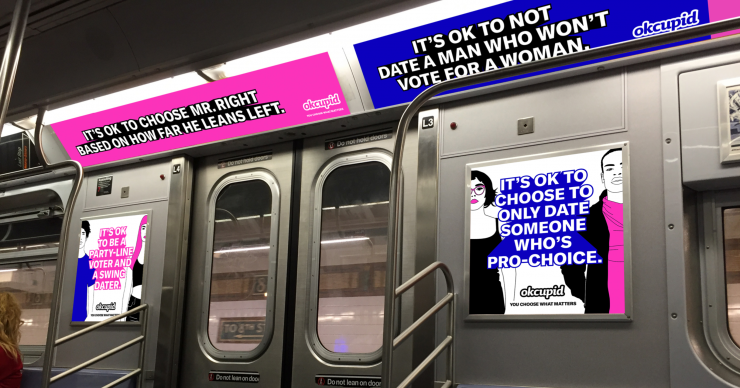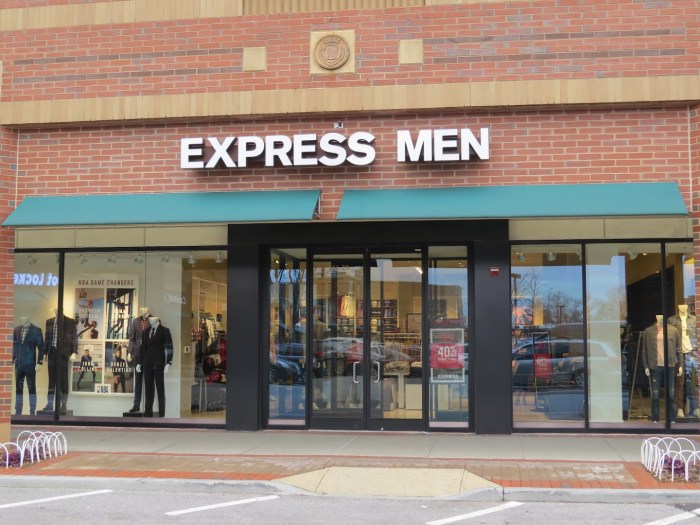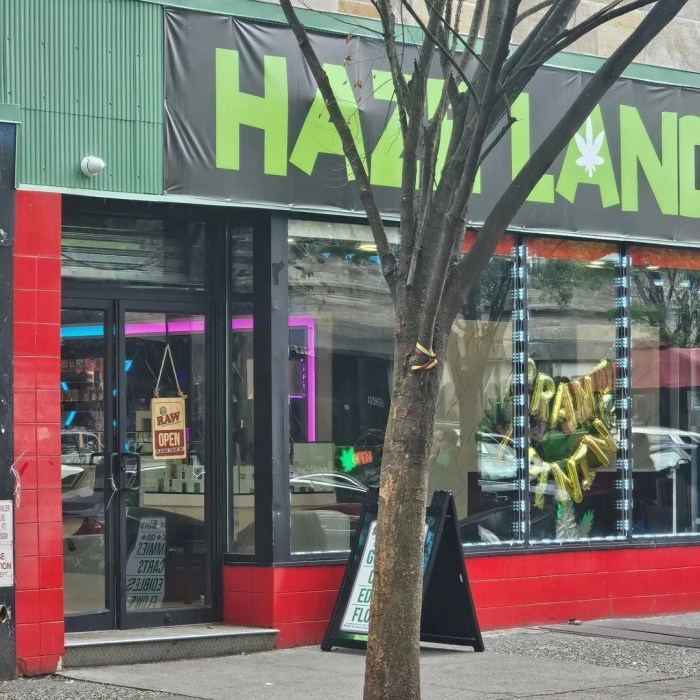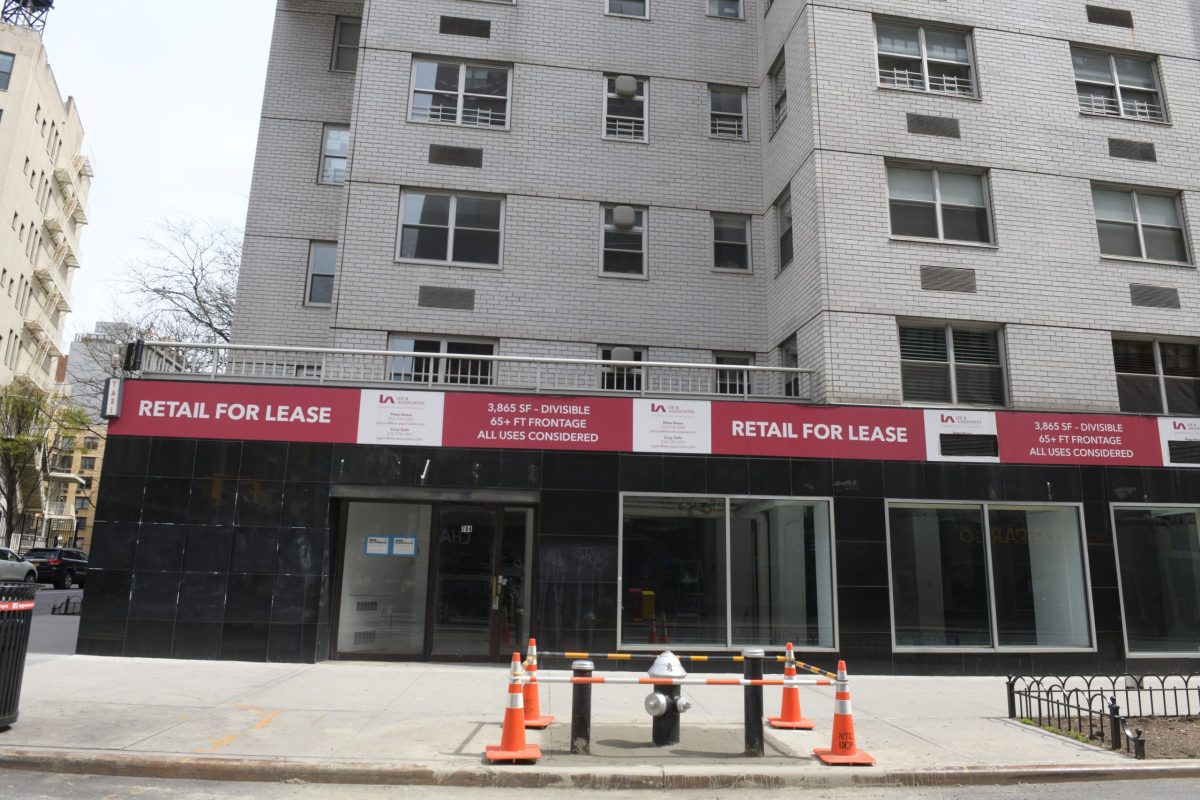A dating app is launching a politically driven ad campaign to get New York City’s single straphangers to define what matters most to them when it comes to relationships.
Starting Jan. 27, OkCupid began their “Ask Yourself” campaign by displaying ads on the MTA. The campaign is based on real daters’ answers to prompt questions that OkCupid offers its users to help find someone compatible.
“What our data shows is that younger daters in particular care deeply about some of the biggest issues of today, and they don’t want this disconnected from their dating experience. Only on OkCupid can we take all of your choices and use that to figure out who you will be the most compatible with,” said Melissa Hobley, global chief marketing officer at OkCupid. “This approach to matching works — just ask the millions of happy couples OkCupid is responsible for around the world.”
According to OkCupid’s data, their users who say that they enjoy discussing politics increased over 150 percent in 2019 when compared to 2016. Other popular topics of conversation, based on OkCupid’s data, included climate change, gun control and voting, as well as music and travel.
Based on these answers, OkCupid rolled out new ads that display the following phrases:
- Could you date someone who couldn’t be bothered to vote?
- Bigger turn-on: Intelligence or looks?
- Is a soulmate worth waiting for?
- It’s OK to not date a man who won’t vote for a woman
- It’s OK to choose to only date someone who’s pro-choice
- It’s OK for your pronouns to mean more than your profile
- It’s OK to only match with someone you can march with
- It’s OK to choose Mr. Right based on how far left he leans
“OkCupid helps users make deeper, more meaningful connections by matching people on the questions that really matter to them,” said Kara Coyle, creative director at Mekanism. “Questions that cover the provocative topics, the telling ones, the make-or-break deciders when it comes to who you date. We brought these questions to life through thought-provoking animation that stops people in their tracks and makes them consider what matters most to them.”

































